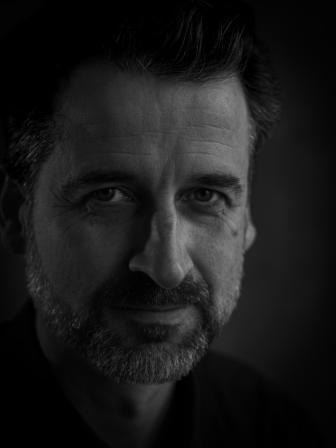Erik Solvanger

Erik Solvanger
Growing up, Erik Solvanger (1976) wanted to travel, write poetry and be a doctor. He has realized his childhood dreams: he is a poet, a doctor and a farmer. As a doctor, he worked abroad in Ethiopia, Kenya and Tanzania. When he returned to Amsterdam, he specialized in psychiatry. Moving back to his childhood province of Zeeland, for several years now he has combined his work in the hospital with life on a farm. This background undoubtedly leaves its mark on his poetry. He is fascinated by, and writes about, the degradation and dehumanization of human beings under inhumane conditions and with chronic deficiencies. About his work as a psychiatrist, Solvanger says, "Through our profession, you are confronted with the suffering of human beings. To be able to endure this, you have to make sure you are open to art, to human beings and their expression.' In his poems, he finds an outlet for the impressions he receives daily and the situations he observes in the hospital and on the farm.
He published the poetry collections Waarom het leven in een witte jas sneller gaat (2023), Het hoof donder de arm (2013), Slijp het sternum (2008, nominated for the J.C. Bloem prize) and Eenvoudig schedellichten (2004). He has published in several anthologies and literary magazines, including Poëziekrant and Het Liegend Konijn.
The degradation of body and mind is a major theme in Solvanger's work; the alienation, the ‘animalization’ or ‘mechanization’ of man. This is particularly strongly felt in the collections Het hoofd onder de arm (2013) and Slijp het sternum (2008). Solvanger shows the reader a world in which the boundaries between life and death, madness and decay are mercilessly stretched. The poems often have an absurdist, surreal or burlesque tone. In his almost 'un-Dutch' idiosyncratic poetry, the mythical and bizarre are intimately entwined with the earthly and physical.
In his fourth collection, Waarom het leven in een witte jas sneller gaat (2023), Erik Solvanger takes the reader into a surprisingly contemporary world. A son says goodbye to his father after a long journey, people in boats at sea grow wings and storm the cliffs with their songs. Two brain hemispheres lie spooned in a glass bowl and whisper sweet nothings to each other, a doctor places an artificial heart in the body of a poet. Cows stand in the meadow with face masks on and ruminate the grass, the sea takes revenge because our ancestors stole land.
Be vigilant in the evening when the windows break,
shards of glass fly like bats through the dark.
In Solvanger's poetic universe, reality tilts again and again in poems full of madness, humanity and hope. Willem Thies wrote of his work, "At its core, this grotesque and absurdist, deeply dark poetry is actually very vital and humanistic - and that makes it extraordinarily intriguing.”
Bibliography
Waarom het leven in een witte jas sneller gaat (2023), Poëziecentrum
Het hoofd onder de arm (2013), De Bezige Bij
Slijp het sternum (2008, nominatie J.C. Bloem Prize), De Bezige Bij
Eenvoudig schedellichten (2004), Sandwich-series (edited by Gerrit Komrij)
Translated by Fleur Jeras
Sponsors















